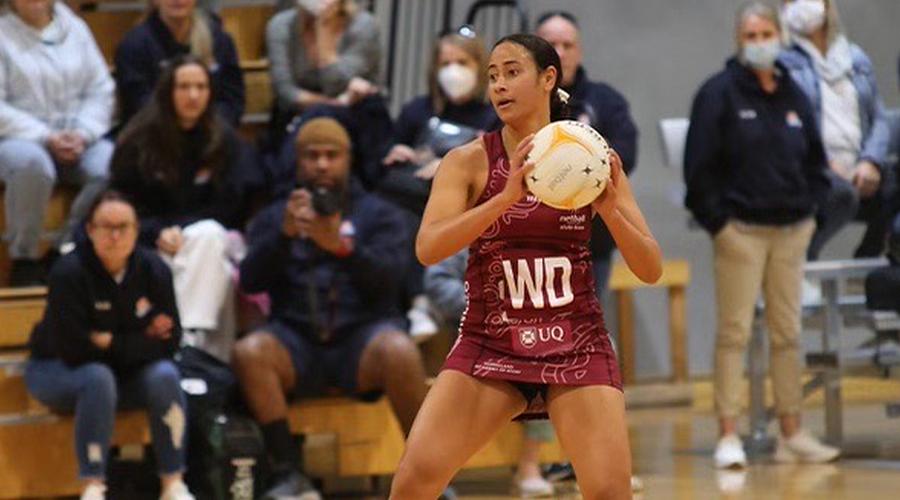By Erin Lyons and Amellia Wood
When you have five siblings, the backyard sport battles are fierce.
And 17-year-old Jayden Molo was never going to take a backwards step, especially when it came to sport.
“I have a younger sister who also plays netball and a brother who plays rugby. My dad’s side of the family are rugby mad, and my mum’s family are big on netball,” she said.
“We are competitive, even in the backyard. We do enjoy winning, but more than that we just push each other which is the best kind of support.”
Molo, a proud Kurtijar woman from the Normanton area in rural Queensland, took up netball at the age of nine and while it may not have been the “pick of the family”, Molo’s reason for why she fell in love with the sport is simple.
“I just get netball. It just makes sense to me,” she said.
“I like being able to understand the sport… having that clear mindset and being able to read the game in a way that others may not see.”
Jayden Molo confesses she is a "shy teenager" but when she steps out on court, she morphs into a different person.Like many talented athletes Molo progressed through the pathways from playing for the Metropolitan North Netball Club in the Brisbane Netball Association for several years, to playing state titles and eventually being named in the state team.
But her journey to selection wasn’t without a few bumps in the road.
The midcourt star made the Queensland squad last year, but was dropped during the first round of cuts.
That moment, she says, was the motivation she needed to push harder for success.
“A lot of things we don’t always get our way. Having that set back led me to reevaluate my goal and I just aimed to make the Queensland side,” Molo said.
Not only did she make the Queensland side – which finished third at nationals - she was also selected in the 17/U national squad.
“The Australian squad is really the first step to get to where I want to get to,” Molo said.
HONOURING HER INDIGENOUS ROOTS
It’s not hard for Molo to determine exactly why she plays the sport.
Her 'why', she says, is about inspiring other Indigenous women to take up netball. And having participated in an Indigenous team - Budgies Indigenous Netball - she experienced firsthand, the desperate need for Indigenous representation.
“It gives girls from Indigenous communities a reason to come and play,” she said.
She credits former Firebird Jemma Mi Mi for leading the First Nations mentoring program, as well as recently named Australian Diamond Donnell Wallam for being a driving force for Indigenous girls in netball.
“Having the other First Nations athletes on Zoom calls was another bonding opportunity,” Molo said of the mentoring program.
“It’s important hearing from Jemma because she has been there. She’s gone through the processes. I look up to her as a role model it shows exactly what’s possible.
“My biggest takeaway from the mentoring program was understanding the opportunity we are given as athletes. Donnell and Jemma are showing the younger girls that Suncorp Super Netball is within reach.”
Jayden Molo credits her five siblings for being the best support network possible.Molo confesses there are a number of life lessons netball teaches you, from helping you learn to work in a team environment to finding yourself as a person, and developing the confidence to move through life – something her role in the 17/U leadership team plays a huge part in.
“Off court, I am quiet and shy. On court, I am aggressive, speak up and am just overall loud,” she said.
“Going away to nationals was a big shock to my teammates because I go from being one version of myself to another.
“If a younger player in associations or school looks up and sees a leader that's like me, Aboriginal, it shows that you can make a team and captain.
“Once we step on court, no matter the team, we’re representing our people and what we can do.
“I do still have a lot to learn about my land and culture, but I am proud to be an Indigenous person, every day.”
And the pipedream for Molo?
To make the Australian Diamonds squad of course.
---------------------------------------------------
Netball Australia acknowledges and pays respect to the Traditional Custodians of the land, the Wurundjeri people, where Netball HQ is based, and to the traditional land you are on today too. We pay respect to their culture, history and Elders, past, present and future.
